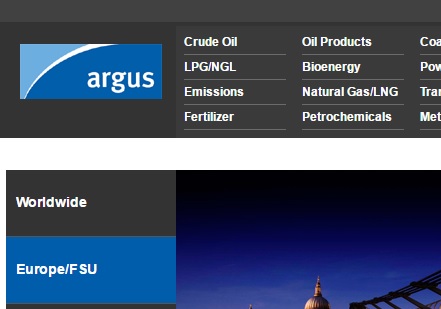Business media firms – is your content necessary or just a nice-to-have?
 Many people outside the commodities markets may not be aware of Argus Media. It is a 46 year-old business which provides data and content – principally – to the oil and gas markets. It grew fairly steadily until 2000, and then its growth increased exponentially. It now has turnover of over £100m, and operations around the world.
Many people outside the commodities markets may not be aware of Argus Media. It is a 46 year-old business which provides data and content – principally – to the oil and gas markets. It grew fairly steadily until 2000, and then its growth increased exponentially. It now has turnover of over £100m, and operations around the world.
This week, its founding shareholders sold a majority stake to General Atlantic, valuing the whole business at close to £1bn. So what can possibly warrant a valuation of around 22 times net earnings?
Somewhere in the press release about the transaction it is mentioned that – along with 160 publications and events – Argus provides 23,000 ‘price assessments’. This is the key: these prices – a daily assessment of the traded values of oil, gas, and other commodities – have driven the valuation and fuelled dramatic growth in the business since 2000.
In Argus’s case, as with Platts, ICIS, and Dow Jones, these prices are cited in contracts between the sell-side and the buy-side of the industries they work in. Therefore, both parties need to subscribe to the service they agree to cite.
It is a neat trick. I have mentioned before Natasha Christie-Miller’s formulation that Emap ‘creates beautiful content that helps people do their jobs better.’ Well, in Argus’s case – as with the other business media firms mentioned – they have gone one step further. They create content people have to have to do their job at all.
It is not just pricing that can lay claim to being necessary content. Within our client RELX, for example, LexisNexis provides critical legal information; Accuity’s growth has been driven by the rise of anti-money laundering legislation; FlightGlobal Ascend provides proprietary content necessary for a host of audiences in the aviation and finance industry; and ICIS price assessments are written into widely-traded commodity contracts.
Sometimes, almost serendipitously, your content can become necessary overnight. Complinet is a great example of this. The company was bought by Thomson Reuters in 2010 because its tracking of financial services regulation became increasingly necessary after the crash of 2008: new regulation meant bankers were much more likely to be prosecuted or fined if they weren’t up to date with compliance requirements. So a nice-to-have became a must-have.
So, how do you make your content as necessary as possible?
Well – and you would expect me to say this I suppose – it does boil down to people: having strong product management teams who are brilliant at gathering customer insight; having content leads who really know their markets; having consultative sales people who can sell the value of the proposition; and having progressive management who are not afraid to change the model as required.
The alternative is to cross your fingers and hope the government introduces legislation that will suddenly make your content set necessary.